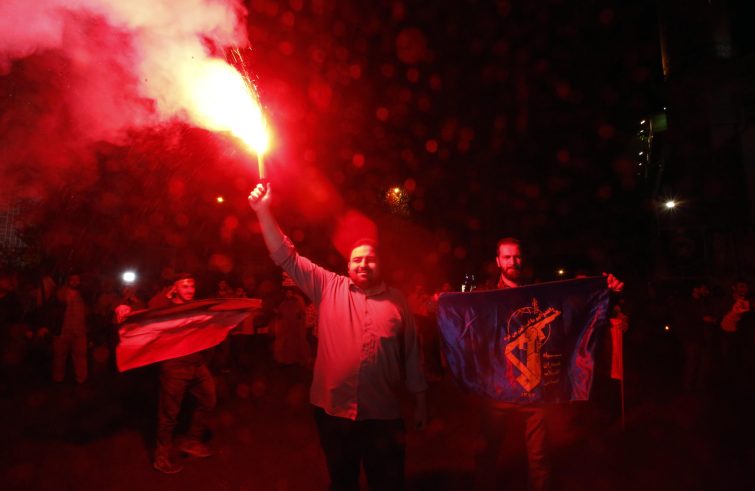
After the massive attack on Israeli military targets, involving more than 300 drones and cruise missiles launched by Iran and its regional allies (Yemen’s Ansar Allah Houthi movement, Iraqi Shiite militias and Lebanese militant group Hezbollah), “future scenarios look bleak. Iran’s coming out of the shadows, against the backdrop of a critically difficult regional context marked in no small part by the war that broke out on 7 October between Israel and Hamas,
is a point of no return in diplomatic, military and social terms.
It is unprecedented.” Claudio Bertolotti, ISPI expert and Director at START InSight, Strategic Analysts and Research Team (http://www.startinsight.eu), told SIR.
A failed attack. In the words of Iran’s ambassador to the United Nations, Amir Saed Iravani, the attack launched by Iran was “an act of self-defence” following Israel’s strike on the Iranian consulate in Damascus. “In military terms,” the expert explained, “Iran’s attack was a failure. The aim was to cause a ‘saturation’ of the Israeli air defence system by launching a large number of drones and then hitting the targets with ballistic missiles”, he said. Israel’s Iron Dome defence system, backed by the US, Britain, France and Jordan, intercepted and shot down 99 per cent of the missiles and drones. But while the attack failed in strategic terms – the expert noted – from a political perspective it was useful to “the Ayatollah’s regime in confronting its own domestic challenges marked by dissent, including among the younger generations, which has gone from silent to increasingly loud. It is a revival of the former strategy that continues being successful, namely the designation of an external enemy that poses a threat to Iran’s integrity and honour. The images and footage of street protests with crowds of Iranians celebrating the attack on Israel should be read in this light. But there is another aspect that should be kept in mind, says Bertolotti: “While on the sideline, Iran has consistently called on its proxies (Hamas, Lebanese Hezbollah, Iraqi Shiite militias, Syria and Yemen’s Houthi movement, Ed.’s note) to wage a united war against Israel.
“But this time, partly for reasons of leadership, balances and preservation of this ‘axis of resistance’, Iran felt that it could no longer hide and had to respond directly, without delegating to one of its proxies”.
Had it not done so, the director of Start InSight points out, “this axis would have been weakened, leaving Tehran alone to confront Israel.”
Prospects for the future. What will happen now that Iran has come out of the shadows? “Political choices will play a major role,” replies Bertolotti. The blocs are not homogeneous. At least for the moment, Russia and China’s respective positions on Iran are not conspicuous. The EU lacks a common vision and the US heads towards presidential elections. Biden may have hopes of regime change in Iran, but he doesn’t want a war because the Arab-Muslim component of the prospective Democratic constituency is unhappy with the way the Israel-Hamas conflict is being handled. The fear of losing votes is great. At this stage, only a “rash move” by Benjamin Netanyahu would “inevitably draw the US into a war.” Nevertheless, Bertolotti concludes, the events of the last few hours could “relaunch the process of regional normalisation initiated by the Abraham Accords signed on 15 September at the White House in Washington by Israel, the United Arab Emirates and Bahrain, thereby weakening Iran as a result.”










